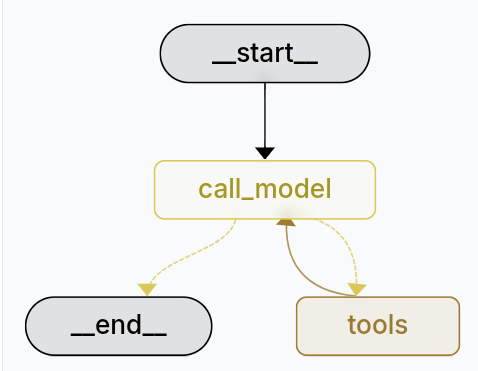
Large language models (LLMs) are meant to be used out-of-the-box to solve a wide range of tasks that previously required multiple machine learning models. Or that couldn't be automated at all.
LLMs empower developers with AI capabilities, without the need to possess the skills of an ML engineer.
Yet using a turnkey LLM platform is not enough to clear up complicated tasks. Custom code has to be written, and I believe that the person in charge of this task belongs to a new category of developer.
The LLM developer.
We need software more than ever
First of all this article is not about vibe-coding or augmented developers or any sort of AI-centric development workflow.
We are dealing here with developers that create features based on LLMs. It could be a coding assistant, a chatbot, a document processing tool, a browser navigation agent...
A real-life AI automation workflow is always a complex piece of software. It may involve using new types of database, mobilizing new architectural patterns and using new specialized frameworks.
 Here is a glimpse of my company article generation workflow, that takes a course slide as input. More than 10 steps are needed and yet it's considered a relatively basic pipeline.
Here is a glimpse of my company article generation workflow, that takes a course slide as input. More than 10 steps are needed and yet it's considered a relatively basic pipeline.
To put it in a nutshell, creating and maintaining LLM-powered systems requires a solid knowledge of how to extract value out of a model. And this knowledge must be kept constantly up-to-date.
To the point that there is probably enough work for one person to spend 100% of their working time in this sole topic.
That's exactly how a new job emerges.
Similary to how a web developer could spend years of their life mastering the various layers of modern full-stack development, an LLM developer could spend years of their life mastering the proper use of an LLM.
Who are the best candidates to become LLM developers?
As I write this article, LLM-related tasks are often devolved to data scientists, data analysts, ML engineers and similar roles that are familiar with manipulating data.
However, I would argue that the skills of a web developers or more broadly a software engineer are more than enough to get started with LLM development.
Because LLMs show in-context learning capabilities, anyone can get good results for many tasks by "just" properly talking to the model. No data involved in the process.
A developer can take prompt engineering to a new level by involving traditional programming structures and patterns: conditions, loops, graphs, API calls, database queries...
Should I know the inner workings of an LLM to be an LLM developer?
Yes and no.
Understanding LLM training mechanisms and their technical functioning is certainly an advantage for grasping the underlying logic and, for example, developing solid skills in prompt engineering.
However, just as one can become a web developer through practice—starting simply by creating websites and gradually learning the internal workings of computer systems—one can learn LLM development by starting with the use of a platform, then creating simple programs, and finally deepening their theoretical knowledge.
There is even a no-code approach to LLM development, typically in the Microsoft ecosystem.
The analogy with web development only goes so far though. There is much more research around LLMs' behaviour, be it theoretical with the study of LLM biology by Anthropic or empirical with this paper from Kojima et al. that proves that yes, adding "Let’s think step by step" to a prompt is enough to make an LLM much smarter.
How to become an LLM developer?
The path I'd recommend to become an LLM developer strongly depends on your initial skillset.
If you come from infrastructure, there's a big demand of setting up internal LLM platforms either on the cloud (AWS bedrock, GCP Vertex AI etc.) or on local servers.
If you come from data, you'll want to start learning about data centric workflows such as Retrieval-Augmented Generation, or LLM fine-tuning, or setting up vector and graph databases.
If you come from web development, you'd be eager to learn an LLM framework such as LangGraph/LangChain in the Python ecosystem or Mastra/AI SDK in the JavaScript ecosystem. My company LBKE trains French professionals to both of these stacks and we think that web developers are in the sweet spot to become excellent LLM developers.
 Here is a ReAct agent, implemented in LangGraph, running on my own computer. I can guarantee that running your very first agent is an incredible moment.
Here is a ReAct agent, implemented in LangGraph, running on my own computer. I can guarantee that running your very first agent is an incredible moment.
If you are not technical at all, I would recommend to keep using existing LLM platforms but focus on learning advanced features, such as document libraries or "GPTs" creation. Later on, you could learn how to implement similar workflows with code, or explore automation platforms that interface with LLMs (n8n for instance).
Does it pay the bill? Will I land a job?
I mostly interact with non-Parisian French SMEs and startups from my neighborhood. They are just starting to set up AI platforms for internal use so it would be a bit early for them to recruit LLM developers.
However, when these platforms are all set-up, companies will be looking for ways to maximize their return on investment. That's where LLM developers will come into play.
We can also expect an ecosystem of AI-centric agencies to emerge, very much like web development agencies.
If you really want an LLM developer position right now, I've seen an actual job offer from the DGSE. Do you fancy ending up working at the famous "Bureau des légendes"?
Is LLM developer the right name?
As foundation models are becoming more and more able to process and produce images and structured data in addition to text, it would be tempting to talk more broadly about "AI developers".
However, traditional predictive AI doesn't have the flexibility of LLMs, and doesn't really act as the basis for decision-making autonomous agents. The ability to process input in natural language is strongly associated with LLMs and the democratization of AI.
I feel like LLM developer is more transparent about the fact that the trade is about using generalists models, not crafting specialized ones.
About the illustration
I could write a whole article about the cover illustration but the main point is that we should get rid of the "white and blue android" or the "glowing brain representation". It's dull and innacurate.
I would rather represent an LLM as a futuristic swiss-knife, as it can be specialized on-the-fly to accomplish tasks and take decision. Iterating on this idea, I ended up with this cool looking sword pommel/scepter thingy. I love it and I hope it becomes more popular.
I've used GPT-4o for the cover image but Gemini's take on the LLM scepter is also worth mentioning, you can see it below:

A fresh start in your developer career
My personal belief is that learning LLM development today is like learning full-stack JavaScript web development in 2010. A solid investment in your career that will be highly demanded in the years to come. So get your API key and your notebook ready!
